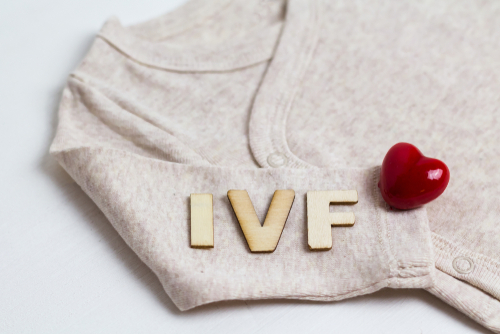In vitro fertilization, or IVF, is a fertility treatment that can help couples who are unable to conceive naturally. More than 1 million babies were born via IVF between 1987 and 2015, but it isn’t an option available to everyone. If you’re curious about IVF or are considering it as an option for your own family, here is everything you need to know about the procedure.
How IVF Works
First, let’s take a look at the basics. An IVF cycle begins at the start of your period and ends when the egg is retrieved, fertilized and implanted. One cycle can take several months, and there is no guarantee it will work on the first try. You’ll start by taking fertility medication to encourage your ovaries to generate several eggs at once, instead of one every month like you do naturally. Once enough eggs have matured, you’ll head into the doctor to have them retrieved. This procedure is relatively simple. The doctor inserts a tube into your vagina, moving up through the cervix and into the uterus and fallopian tubes until they reach the ovaries. Then, gentle suction is applied to remove the mature eggs so they can be fertilized. The newly retrieved eggs are then mixed with sperm to allow for fertilization. If low motility is a problem ? the sperm has trouble swimming ? the cells may be injected directly into the eggs. If fertilization is successful, the embryo starts growing in a petri dish in the lab. The team monitors the cell division for three to five days. Once the embryo is ready, it is inserted directly into the uterus. If the embryo attaches to the lining of the uterus, it is considered a successful IVF cycle. It seems pretty complicated, but you’ll have the support of a team of doctors and nurses throughout the procedure.
Cost
The price of an IVF cycle is one of its biggest obstacles. On average, one cycle of IVF can cost between $12,000 and $17,000 without insurance. Only 15 states have some laws on the books that require insurance companies to cover fertility treatments. This means that IVF is often out of reach for couples who aren’t in those states, or who don’t have the money to pay for the treatment. If you’re looking for more affordable options, you can also compare the costs of home insemination and intrauterine insemination to determine which option is accessible for you and your partner.
Egg and Sperm Options
About 39 percent of IVF cycles involve nondonor sperm and eggs ? meaning that the necessary cells come from the child’s biological mother and father. Thankfully, for men or women who have fertility problems, this isn’t the only option. IVF patients can choose to utilize donor eggs, donor sperm or even donor embryos, depending on their situation. Women who respond well to fertility treatment and have no problem producing mature eggs can even choose to become egg donors to help other couples who are struggling with infertility, or LGBT+ couples who can’t conceive on their own.
How Long Does It Take?
On average, a typical IVF cycle will take four to six weeks, but this can vary drastically depending on how long it takes for your body to produce a sufficient number of viable eggs.
Best Age for IVF
Just like with natural pregnancies, the success rates of an IVF cycle depends on the age of the mother. For women under the age of 35, the percentage of success is 54.4 percent. After 35, this number drops slowly. For women over the age of 43, the chance of success of a live birth per egg retrieval is only 3.9 percent.
Choosing the Gender
Some fertility clinics may give you the option to select the gender of the embryo they implant. The medical team can tell the biological gender of the embryo by looking at its chromosomes, but this presents an ethical quandary. Some experts believe it is a slippery slope that could lead to a trend of designer babies, or infants that are genetically modified in the womb. Gender selection is also much more expensive than a typical IVF cycle and isn’t available at all clinics. Some medical professionals won’t separate the embryos by gender, instead choosing the healthiest one for a higher chance of a successful cycle.
IVF Risks
As with any medical procedure, an IVF cycle is not without its risks. Aside from the typical side effects ? bloating, cramping, breast tenderness, etc. ? there are other things to consider. The chance of multiple pregnancies is much higher with IVF than with traditional conception. Egg retrieval can also cause damage to the bladder or bowels if done incorrectly. The embryo also has a 2-5 percent chance to migrate to the fallopian tube, causing an unviable ectopic pregnancy. The fertility medications needed for egg retrieval also have a small chance to trigger ovarian hyperstimulation syndrome. These things are not meant to scare you away from considering IVF. It’s important to understand all the risks before undergoing a procedure like in-vitro fertilization.
Making the Right Choice for You
When it comes right down to it, there are no guarantees that one or more IVF cycles will result in a successful pregnancy, but for many couples, their chances are better with IVF than without it. Make sure you’ve considered all your options before pursuing IVF, and that you’re prepared for the emotional and monetary responsibilities of these cycles.





